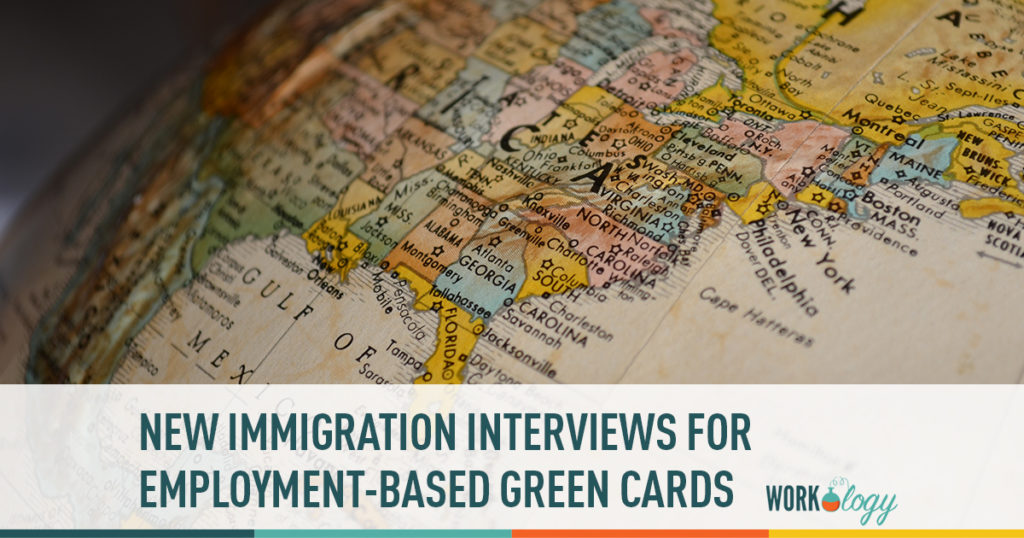New Immigration Interviews for Employment-Based VIsas
In-person interviews will be necessary starting on October 1st for people wishing to change from an employment-based nonimmigrant status (such as H-1B, L-1, or O-1 status) to legal permanent residence (or “green card”) status in the United States, according to a statement from U.S. Citizenship and Immigration Services (USCIS). Family members of refugees or asylees who want to join a primary asylee/refugee applicant will also need to go through an interview process. Although interviews are typically waived under current policy for applications for employment-based adjustments of status, the new change is a result of President Trump’s “extreme vetting” immigration policies.
According to the USCIS release, immigration officers will interview applicants for employment-based green cards to verify the facts on their I-140 applications and/or to learn new information and assess the applicant’s reliability. In circumstances when a candidate may have done so, an immigration officer may check to discover if the candidate has shifted his or her employment to a new employer.
The adjudication of I-485 Applications to Adjust Status may experience significant delays as local USCIS offices prepare for the influx of interviews that are now required. Employers and applicants should plan accordingly. In addition, the cost of obtaining permanent residency may soon rise for both employers and applicants. This could happen in the form of higher application fees to cover the cost of hiring more USCIS officers to conduct interviews, as well as higher legal fees or the need for employees to take time off work to deal with immigration processing issues.
Those who have pending I-485 or I-730 applications should be prepared to be called in for an in-person interview at a nearby USCIS office. Candidates should be ready to discuss the immigration benefit they are looking for during the interview, and they should be fully aware of the application that was submitted on their behalf. Applicants for employment-based green cards should be able to talk about the position they hold, including where they work, how much they are paid, and what their exact job responsibilities are. Families of refugees and asylees should be prepared to provide documentation establishing their kinship.
This new change to the permanent residency process is expected to be onerous. Employers and applicants should work closely with counsel to prepare for this interview process. Our office will continue to monitor the rollout of this new policy. For questions or help in preparing for these interviews, please contact us.









One Comment
Great to be informed Jason. Love your information updating the public and keeping us well informed. Thank you.
Comments are closed.